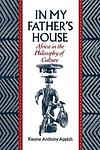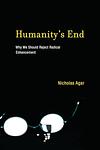The Greatest New Zealand, Ghanaian "Nonfiction" Books Since 1980
Click to learn how this list is calculated.
This list represents a comprehensive and trusted collection of the greatest books. Developed through a specialized algorithm, it brings together 300 'best of' book lists to form a definitive guide to the world's most acclaimed books. For those interested in how these books are chosen, additional details can be found on the rankings page.
Genres
Countries
Date Range
Reading Statistics
Click the button below to see how many of these books you've read!
Download
If you're interested in downloading this list as a CSV file for use in a spreadsheet application, you can easily do so by clicking the button below. Please note that to ensure a manageable file size and faster download, the CSV will include details for only the first 500 books.
Download-
1. In My Father's House by Anthony Appiah
"In My Father's House" by Anthony Appiah is a thought-provoking exploration of the complexities of African identity and the concept of cultural authenticity in a globalized world. Through personal anecdotes, historical analysis, and philosophical reflections, the author challenges essentialist notions of African culture, arguing for a more fluid understanding that embraces the diverse influences and hybridity of modern African societies. Appiah's nuanced perspective sheds light on the intricate interplay between tradition and modernity, and invites readers to question and redefine their own cultural identities.
-
2. Cutting The Rose by Efua Doorkenoo
"Cutting The Rose" is a gripping and thought-provoking novel that delves into the complexities of identity, culture, and the power dynamics within a Ghanaian community. Set in the 1960s, the story follows the life of a young woman named Akosua, who must navigate the expectations placed upon her as a woman in a patriarchal society while also grappling with her own desires and ambitions. Through vivid storytelling and rich character development, the author explores themes of tradition, love, and the pursuit of self-discovery in a changing world.
-
3. Common Sense, Science, And Scepticism by Alan Musgrave
This book critically examines the foundations of knowledge, blending philosophy with practical reasoning to navigate the concepts of common sense and scientific skepticism. It challenges readers to question how we distinguish between what is considered 'common sense' and what is scientifically proven, delving into the philosophical underpinnings of skepticism itself. Through a rigorous analysis, the text explores the limits and strengths of human understanding, encouraging a thoughtful reconsideration of how we accept or reject information in the realms of science and everyday life. It serves as both an introduction to philosophical skepticism and a deep dive into the epistemological questions that underlie our quest for knowledge.
-
4. Humanity's End by Nicholas Agar
This book presents a thought-provoking exploration of the potential future of human evolution, focusing on the implications of advanced biotechnologies and artificial intelligence. The author argues that these technologies might lead to the emergence of posthuman beings—entities vastly more intelligent and possibly immortal compared to current humans. The narrative delves into the ethical, philosophical, and societal impacts of such a transformation, questioning whether this evolution would signify the end of humanity as we know it or the beginning of a new, unimaginable phase of existence. Through a careful examination of the potential benefits and risks, the book challenges readers to consider the value of human qualities and the essence of what it means to be human in a rapidly changing world.
-
5. Interventions by Kofi Annan
This book is a compelling memoir and a detailed account of the diplomatic life of one of the world's most esteemed peacemakers. Through a series of engaging narratives, the author shares his experiences and the lessons learned during his tenure as the Secretary-General of the United Nations. He delves into the complexities of negotiating peace, fostering development, and promoting democracy across the globe, while also addressing the myriad challenges he faced, from conflicts and wars to global health crises and the fight against poverty. The author's insights into the intricacies of international diplomacy and his unwavering commitment to peace and justice make this work an invaluable resource for understanding the efforts required to sustain global harmony and security.
Reading Statistics
Click the button below to see how many of these books you've read!
Download
If you're interested in downloading this list as a CSV file for use in a spreadsheet application, you can easily do so by clicking the button below. Please note that to ensure a manageable file size and faster download, the CSV will include details for only the first 500 books.
Download



